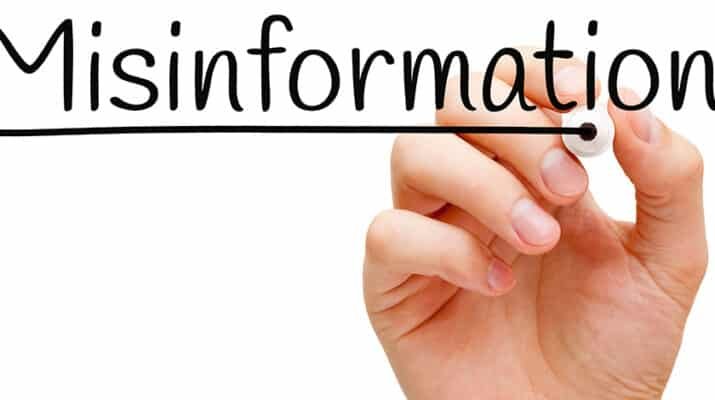By Deborah Jeanne Sergeant
According to a 2022 study commissioned by CharityRx of 2,000 U.S. adults, Americans turn to social media influencers for advice on anxiety (34%), weight loss (34%) and depression (33%), each of which represents the most common sources of information on these topics.
The study also relates that nearly 20% of Americans trust health influencers more than their local medical professionals and one in five rely on TikTok videos before seeing a doctor when they seek treatment for a health issue.

Karl Shallowhorn, credentialed alcoholism and substance abuse counselor and director of youth programs at Mental Health Advocates of Western New York in Buffalo, acknowledges that “there’s a lot of good information online, but is it an accurate source, or Joe’s blog or a TikTok video?” he said. “Is this person a credentialed individual with experience? A peer can provide good information, but when a person is talking about themselves, where is it coming from? It doesn’t necessarily mean that it’s scientifically based or research based. I encourage people to seek out resources to make sure there’s research behind it.”
The lack of accountability or verification with personal information make it less reliable and most likely based upon anecdotes than information from organizations and from professionals in that specialty. Add to that tendency the anecdotes offered by social media influencers and many people looking online — especially young people who are less experienced in research — may find false information. Random posters have no oversight or accountability.
Shallowhorn said that “contagion behaviors” such as self-harm is prevalent on social media, especially with young people.
It is also easy to get caught up in self-diagnosis for those exhibiting symptoms.
“If you know what you’re looking for, you’ll probably find it,” he said.
Oftentimes, patients research their symptoms online to self-diagnose before seeing a provider. Although research can help generate more in-depth questions if patients then see a provider, some people try home remedies or otherwise delay important care because of a false diagnosis.
“It’s almost human nature,” Shallowhorn said of this tendency. “You can read into information however you want and find a way to identify yourself. It’s one of the dangers of the internet.”
Online quizzes can falsely lead participants to think that their unrelated symptoms add up to something serious. Although some healthcare providers may use an evidence-based questionnaire to help patients better express their symptoms and their severity, online quizzes about symptoms tend to ask too few questions and derive inaccurate conclusions.
Shallowhorn said that his organization provides an online screening tool for mental health operated through Mental Health America. But screening tools help participants consider reaching out to providers, not attempt diagnosis.
Shallowhorn recommends the websites of the National Institutes of Mental Health, American Psychological Association, and those of college and universities.
News articles from reputable organizations hold weight, as journalists are held to ethical and professional standards requiring finding reputable sources and quoting them accurately. Before publication, books and reputable periodicals fact check and ensure that the information is correct and up to date. Few such checks exist on social media.
TikTok’s content — along with a good share of other social media — is for entertainment purposes or at best anecdotal examples, not healthcare information that applies to the general population.

“As a general rule, don’t listen to people if they’re not famous for knowing about medicine,” said physician Steven Dubovsky, president of UBMD Psychiatry, professor and chair of the Department of Psychiatry at Jacobs School of Medicine and Biomedical Sciences at University at Buffalo.
Even when finding good sources, it is important to make sure it is up-to-date and to interpret it correctly.
“If you don’t know how to interpret it, you can draw the wrong conclusions,” Dubovsky said. “On the CDC site, you may learn information about treatment for a condition, but not about do you have that or the best treatment.”
He does see merit in learning about conditions to gain background information. However, the application of health information is best in the hands of medical providers.

Another provider who likes to see patients learn about their health is physician John Fudyma, who holds a master’s in public health and serves as interim division chief of General Internal Medicine at UBMD Internal Medicine and associate professor at Jacobs School of Medicine and Biomedical Sciences, University at Buffalo.
“I encourage patients to go and look for information on their own regarding their condition so they’re an educated patient. The key is finding sites that are reputable,” Fudyma said.
He recommends the Cleveland or Mayo clinic websites or similar, reputable institutions. Although research papers are widely available online, it can be difficult to determine what they mean. Fudyma said that these can even become stress and anxiety generating if they do not understand the science behind them. Some studies are based on small populations and groups of people who do not represent the person reading the study, which would reduce the likelihood that the information pertains to them.
“As always, the best thing to do is to discuss it with your primary care provider to better understand what you may have found on the web,” Fudyma said.
The following are reputable sources of healthcare information:
American Psychological Association
www.apa.org
CDC
www.cdc.gov
Cleveland Clinic
https://my.clevelandclinic.org
Food & Drug Administration
www.fda.gov
Mayo Clinic
https://www.mayoclinic.org
National Institutes of Health
www.nih.gov
Psychology Today
psychologytoday.com
PubMed
www.ncbi.nlm.nih.gov/pubmed
WebMD
www.webmd.com
World Health Organization
www.who.int

